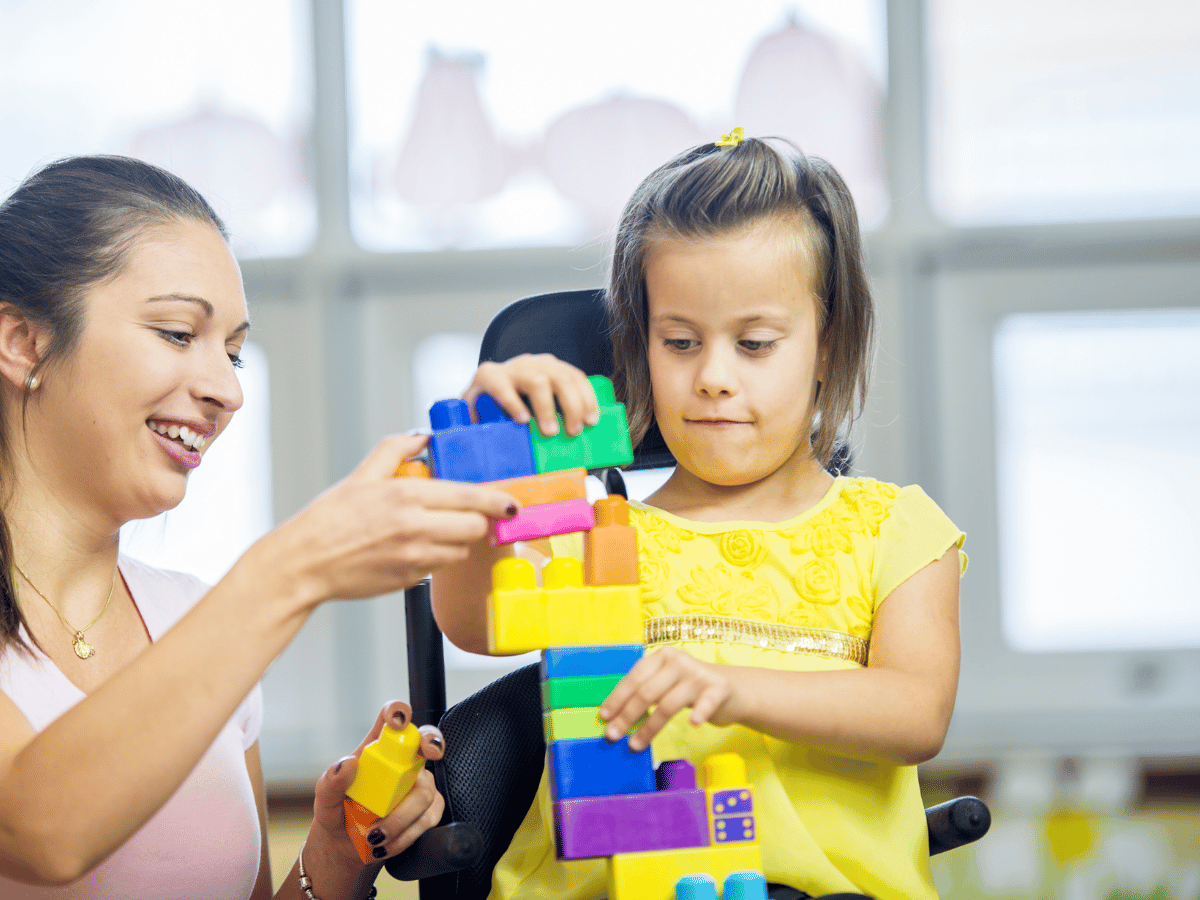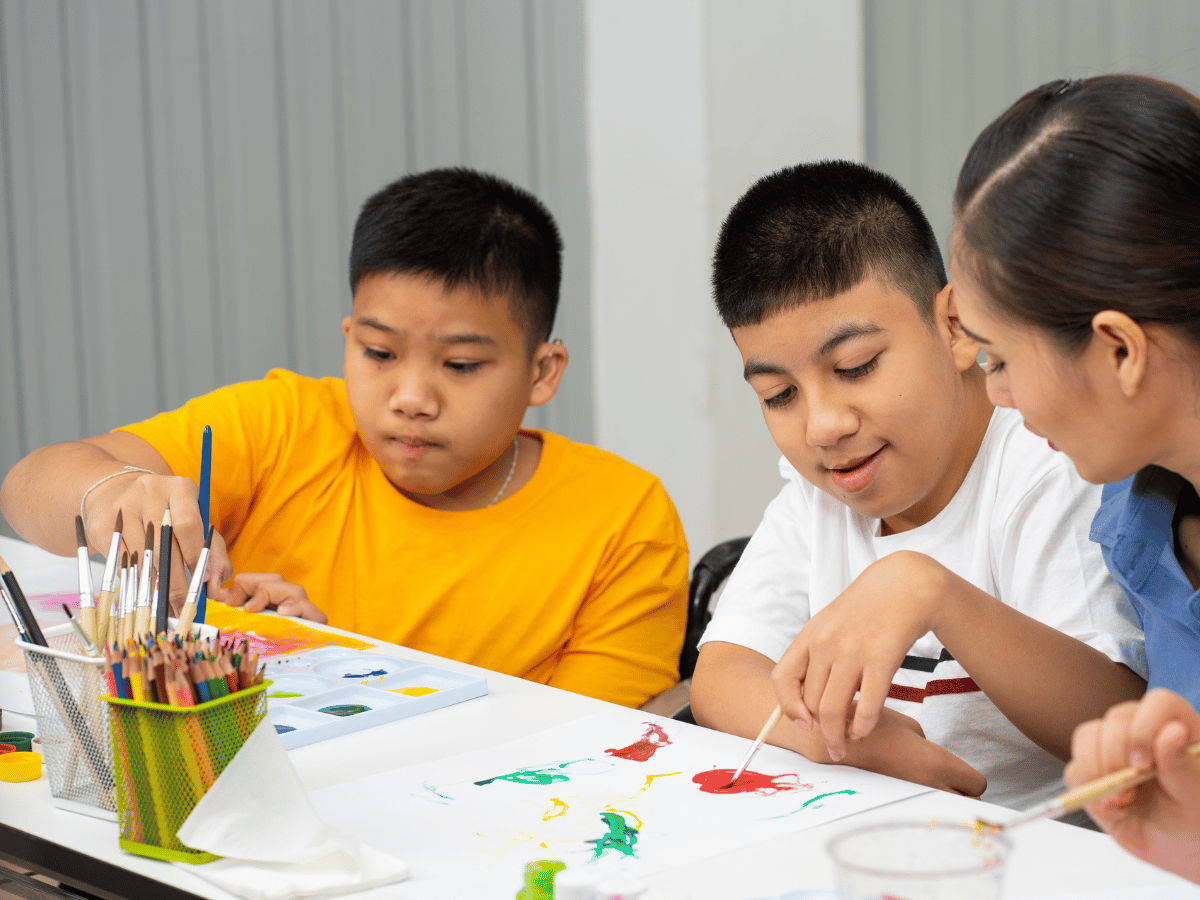Early childhood
On This Page
Introduction
Research tells us that inclusive and accessible early childhood experiences lead to more inclusive adult lives.
When everyone has access to good education, employment, making friends and community life, we all benefit – culturally, socially and economically.
The needs of a child include access to health, learning, housing, feeling loved and safe, and feeling good about who they are.
Every child, with or without disability, deserves quality, accessible, inclusive early childhood learning. Many young children with disability don’t have this (with or without the NDIS).
At CYDA, we work to make sure that families and children get the support they need to be included as early as possible.


What does inclusion look like?
Inclusion might mean:
- Physical inclusion: being present and fully participating in the same learning environments as all children, for the same amount of time.
- Social inclusion: all children are welcomed and supported to belong, not separated from their peers on the basis of disability or difference.
- Curriculum inclusion: the curriculum is delivered accessibly, so that all children can use the learning materials with appropriate support and adjustments.
- System inclusion: closing existing gaps (for example, a lack of teacher knowledge and skills in providing education to children with disability, or inadequate learning resources), to remove educational disadvantage and optimise resources.
What are the barriers to inclusion?
- Culture and ableism - Difference or delays in development (diagnosed or not) often divert children and families from mainstream paths of childhood.
- Lack of voice - Children and young people with disability are not front and centre and their voice is not heard or sought.
- Resources - Information is widely available and voluminous with a strong emphasis on the child meeting development milestones. This can be overwhelming for families. Resources where available also tend to be siloed and directed to ‘special’ programs and segregated settings.
- Lack of informal supports – The reliance on families, parents and caregivers to advocate for inclusion is significant. They are pressured to seek 'early intervention' and also bear responsibility for building an inclusive community around, and advocating for, their child.
- Lack of formal supports - Lack of investment in awareness raising for professionals across all systems about children and young people’s human rights, the law, the evidence base and the benefits for everyone.
- Intersectionality - Formal and informal social supports struggle to deal with intersectionality between disability and other areas of difference.


Early childhood and the law
The Disability Discrimination Act
Under the Disability Discrimination Act (DDA), it is unlawful to discriminate against a person because of a disability. The DDA protects people with disability against discrimination in many areas of public life, including education.
Providers must also make reasonable adjustments to accommodate a person with disability, unless making the adjustment would impose an unjustifiable hardship on the provider.
All early childhood education and care services must comply with the DDA.
The Disability Standards for Education
The Disability Standards for Education clarify the obligations of education and training providers and the rights of people with disability. The standards currently apply to preschools, including kindergartens (but not childcare providers).
CYDA has been working with the Australian Government on resources that can help you understand the Standards which you can find here.
The National Quality Framework
The National Quality Framework (NQF) provides a national approach to regulation, assessment and quality improvement for early childhood education and care and outside school hours care services across Australia.
Children with disability (or any groups of children with additional and/or specific needs) are not explicitly mentioned. Instead, the NQF emphasises the inclusivity of all children and the need to tailor all aspects of education and care to the unique circumstances of ‘each’ and ‘every’ child.
Relevant research
Department of Education. (2019). Benefits of Educational Attainment: Employment and income support.
Deloitte Access Economics. (2016). The economic impact of improving schooling quality. Department of Education and Training: Canberra.
Cologon, K. (2010). Towards inclusive education: A necessary process of transformation.
Children and Young People with Disability. (2019). Time for change: The state of play for inclusion of students with disability: Results from the 2019 CYDA National Education Survey.

